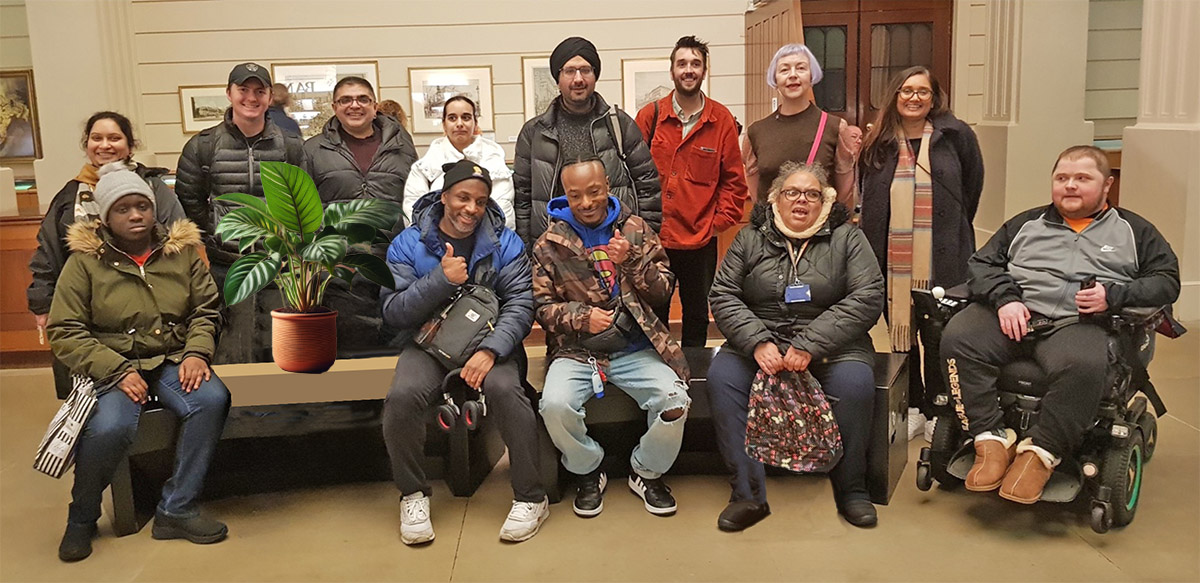Connecting policy makers with people with learning difference/disabilities: developing an inclusive Citizen Science approach to digital financial inclusion

RIX co-researchers and purpleSTARS members visited the Bank of England Museum, in collaboration with UCL’s Citizen Science Academy, to find out about how inclusive money is now, and how inclusive it will be in the future.
Our ideas were inspired by the article I Forgot My Numbers and the Machine Swallowed It Up in which adults with learning disabilities share their perspectives on the shift to a cashless society. The article was written by Paul Watts, Janet Hoskin, Radhika Upadhyay, Emma Tapley, and Gosia Kwiatkowska.
Our research questions
- What is money?
- What worries you about money now and in the future?
- What is your opinion about the decline in use of bank notes and coins and a future where there will only be online banking and digital money.
- Do we want a cashless future? If we do, or if it’s too late to stop the decline of physical money, how can we make sure financial products like online banks and banking apps are designed to be more accessible and inclusive?
We began our exploratory research into what money is by visiting the Bank of England Museum and their exhibition The Future of Money, where we met the curators of the exhibition and the museum.
We have been exploring the impact of current money worries including the prevalence of fraud. A major concern is with online scammers and phone scams where criminals convince us to invest in get rich quick schemes or where bills are paid into fake accounts, leaving people unsure about who to trust and how to protect themselves.
The closing down of many physical banks, where people can visit and get to know and trust a bank employee, was highlighted as a big loss. Using online banks, remembering passwords and negotiating complicated sign-ups were cited as problematic. The attitude of people who work in banks was discussed, that employees need to be trained to consider others, be nice and give people time to understand. When things go wrong, everyone agreed they would rather talk this through with a real person than fill in an online form or talk to a chat bot.
We like cash, it’s satisfying and comfortable to be able to touch our money. We also tried smelling it, and we liked the sound of it being crunched up. We discussed how cash – coins and notes – can help budgeting. A card is very easy to use and everyone liked that you don’t have to work out how much change you should receive. However, people also found it easier to overspend and harder to resist buying something when all you have to do is tap, tap, tap…
We want to find out what other people think about a cashless future and have been exploring how to do this in a creative way that we hope catches the attention of the people responsible for designing how money will be in the future.
The purpleSTARS co-researchers from Rix Inclusive Research will be at the Newham Citizen Science Fair on Saturday 12 April. Our exhibit will include our concept Bank of Purple Stars (BPS) an action research, creative approach to engaging citizens of Newham by asking them to deposit their opinions, worries and ideas about money both now and in the future. In return the BPS offers visitors at the Newham Citizen Fair the chance to engage in some playful games and creative activities including designing badges, banknotes, money and contactless cards.
We will also introduce ideas in development for our educational role play characters, Cyber Spender (hero) and Scamster Hamster (villain).
We will share our findings with policy makers and designers of future financial products with the aim of promoting inclusive designs as part of a more inclusive digital financial future.

